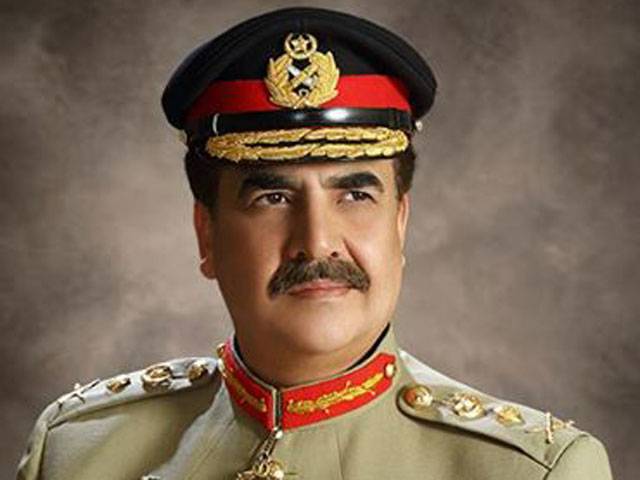ISLAMABAD - The military will protect its dignity “at all costs”, the army chief said on Monday in an show of resolve against certain quarters pointing fingers at the institution.
Chief of Army Staff General Raheel Sharif said the Pakistan Army upholds the sanctity of all institutions and will resolutely preserve its own dignity and institutional pride.
According to ISPR, Gen Sharif expressed these views during his visit to the Headquarters of Special Service Group (SSG) at Ghazi Base, Tarbela on Monday.
He paid glowing tributes to the sacrifices of the SSG soldiers and officers and acknowledged their tremendous success while fighting against terrorists.
He said the Pakistan Army takes pride in its brave and battle hardened Special Services Group ranked among the top elite forces of the world. Given the specialised nature of their job in the most sensitive, complex and challenging environment, the COAS said they have all along exhibited outstanding professional skills.
Speaking to SSG officers and soldiers, the COAS said the Pakistan Army never has and never will shy away from rendering any sacrifice in ensuring a formidable defence and security of the motherland.
Drawing its strength from national support, with its characteristic coherence and resilience, the Pakistan Army has contributed immensely towards national security and nation building and will continue to deliver on its mission, he added.
Earlier on arrival, the COAS was received by SSG GOC Maj Gen Abid Rafiq.
Agencies add: While our country is faced with multiple internal and external challenges, Pakistan Army upholds the sanctity of all institutions and will resolutely preserve its own dignity and institutional pride, the COAS said while responding to the concerns of soldiers on undue criticism of the institution in recent days.
Last month, a Pakistani court indicted Musharraf on five counts of treason over his suspension of the constitution and imposition of emergency rule in 2007, when he was trying to extend his rule.
Musharraf, who first seized power as army chief in a 1999 coup and later became president as well, faces the death penalty if convicted. He has pleaded not guilty.
The case again Musharraf highlights the competition for influence between Pakistan’s three power centres: an increasingly assertive judiciary, the fledgling civilian government and the powerful military, which has ruled Pakistan for more than half of its 67-year-history.
Musharraf’s indictment has broken an unwritten rule that the top ranks of the military are untouchable.
Musharraf was forced to step down as president in 2008 after street protests spearheaded by the judiciary and an election in which his political supporters fared poorly against a pro-democracy party.
He returned to Pakistan in March 2013 after nearly four years of self-imposed exile to contest a general election in May that year but was disqualified because of court cases pending against him.
Since then, he has faced a series of charges including murder in connection with the assassination in 2007 of former prime minister Benazir Bhutto.
Musharraf has denied all the charges and dismissed them as politically motivated.
He is living under house arrest in his farmhouse on the outskirts of the capital.
Thursday, April 18, 2024
COAS serves a reminder
Gen Sharif says military respects other institutions, will preserve its own dignity, pride at all costs

Caption: COAS serves a reminder
Jailed Myanmar leader Suu Kyi moved to house arrest
April 18, 2024
Jahangir Khan PSA Satellite Squash Series strats
April 18, 2024
Pakistan women face West Indies women in first ODI today
April 18, 2024
Asad, Amir reach PTLA Junior National Tennis semis
April 18, 2024
Rail Revival
April 17, 2024
Addressing Climate Change
April 17, 2024
Saudi Investment
April 17, 2024
Political Reconciliation
April 16, 2024
Pricing Pressures
April 16, 2024
Workforce inequality
April 17, 2024
New partnerships
April 17, 2024
Shikarpur crisis
April 17, 2024
Peace quest
April 17, 2024
Democratic harmony
April 16, 2024
ePaper - Nawaiwaqt
Advertisement
Nawaiwaqt Group | Copyright © 2024





